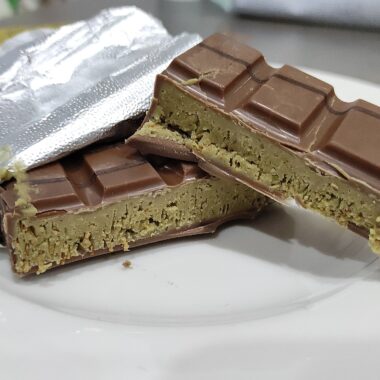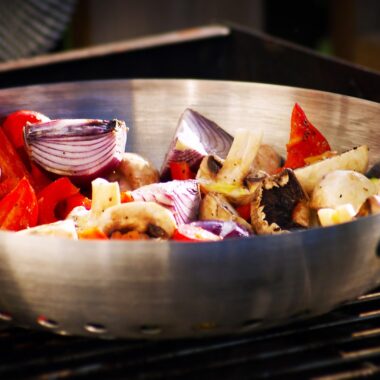Diarrhea is an uncomfortable and sometimes distressing condition that affects millions of people worldwide. Whether it’s caused by food poisoning, stress, an infection, or an underlying digestive disorder, diarrhea can lead to dehydration, weakness, and an overall feeling of being unwell. While medical intervention may be necessary for severe cases, many people turn to natural remedies like herbal teas to soothe their digestive tract and restore balance.
Tea has been used for centuries as a natural remedy for digestive issues, and certain herbal infusions can help ease diarrhea, reduce inflammation, and rehydrate the body. In this article, we will explore the best teas for diarrhea, their benefits, how to prepare them, and tips on when and how to drink them.
Why Tea is Beneficial for Diarrhea
Herbal teas can help manage diarrhea in several ways:
- Hydration: Diarrhea causes excessive loss of fluids, leading to dehydration. Drinking tea helps replenish lost fluids and electrolytes.
- Anti-inflammatory Properties: Many herbal teas contain compounds that reduce inflammation in the gut, easing pain and discomfort.
- Astringent Effects: Some teas have natural astringent properties, helping to tighten intestinal tissues and slow down diarrhea.
- Antimicrobial Benefits: If diarrhea is caused by bacterial infections, certain teas can help fight harmful pathogens.
- Soothing the Digestive System: Many herbal teas help relax intestinal muscles, reducing cramping and discomfort.
Best Teas for Diarrhea
1. Ginger Tea
Why It Helps:
Ginger has strong anti-inflammatory and antimicrobial properties that help soothe the digestive tract, reduce nausea, and combat infections that might be causing diarrhea. It also helps to regulate bowel movements and ease cramps.
How to Prepare:
- Slice a fresh piece of ginger (about 1 inch).
- Boil 1 cup of water and add the ginger slices.
- Let it simmer for 5-10 minutes.
- Strain and drink warm. You can add honey for taste.
When to Drink:
Drink ginger tea 2-3 times a day to relieve symptoms of diarrhea.
2. Chamomile Tea
Why It Helps:
Chamomile is well-known for its calming and anti-inflammatory properties. It helps reduce intestinal spasms, relieve cramping, and soothe an irritated digestive system. Chamomile also has mild antibacterial effects, which may help if diarrhea is caused by an infection.
How to Prepare:
- Steep 1-2 teaspoons of dried chamomile flowers in hot water for 5-10 minutes.
- Strain and drink warm.
When to Drink:
Drink chamomile tea 2-3 times a day for relief.
3. Peppermint Tea
Why It Helps:
Peppermint tea relaxes the muscles of the intestines, reducing spasms and cramping that often accompany diarrhea. It also has antimicrobial properties that can help fight harmful bacteria.
How to Prepare:
- Steep 1 tablespoon of fresh peppermint leaves (or 1 teaspoon dried leaves) in hot water for 5-10 minutes.
- Strain and drink warm.
When to Drink:
Drink 2-3 cups per day, but avoid if you have acid reflux, as peppermint can relax the lower esophageal sphincter and worsen symptoms.
4. Black Tea
Why It Helps:
Black tea contains tannins, which have an astringent effect that can help tighten intestinal tissues and reduce diarrhea. It also contains antioxidants that support overall gut health.
How to Prepare:
- Steep a black tea bag or 1 teaspoon of loose black tea leaves in hot water for 3-5 minutes.
- Drink warm, with honey if desired.
When to Drink:
Drink 1-2 cups daily, but avoid excessive consumption, as too much caffeine can have a laxative effect.
5. Green Tea
Why It Helps:
Green tea contains polyphenols that help reduce inflammation and support digestion. It also has mild antibacterial properties that may help fight infections contributing to diarrhea.
How to Prepare:
- Steep a green tea bag or 1 teaspoon of loose green tea leaves in hot water for 2-3 minutes.
- Drink warm, without excessive sugar or milk.
When to Drink:
Drink 1-2 cups daily, but avoid overconsumption due to caffeine content.
6. Fennel Tea
Why It Helps:
Fennel tea helps reduce bloating, cramping, and gas. It also has antimicrobial properties that may assist in fighting infections that cause diarrhea.
How to Prepare:
- Crush 1 teaspoon of fennel seeds and steep in hot water for 5-10 minutes.
- Strain and drink warm.
When to Drink:
Drink 1-2 cups per day as needed.
7. Cinnamon Tea
Why It Helps:
Cinnamon has natural antibacterial and anti-inflammatory properties that help fight infections and calm digestive discomfort. It also aids in slowing down bowel movements.
How to Prepare:
- Boil 1 cup of water with a small cinnamon stick or ½ teaspoon of cinnamon powder.
- Let it steep for 10 minutes, strain, and drink warm.
When to Drink:
Drink once or twice daily for best results.
8. Blackberry Leaf Tea
Why It Helps:
Blackberry leaves contain tannins, which have an astringent effect that helps tighten intestinal tissues and reduce diarrhea. This tea is commonly used in traditional medicine for digestive issues.
How to Prepare:
- Steep 1-2 teaspoons of dried blackberry leaves in hot water for 5-10 minutes.
- Strain and drink warm.
When to Drink:
Drink 1-2 cups per day until symptoms improve.
9. Rooibos Tea
Why It Helps:
Rooibos tea is caffeine-free and packed with antioxidants. It has anti-inflammatory properties that help soothe the digestive system and ease diarrhea.
How to Prepare:
- Steep a rooibos tea bag or 1 teaspoon of loose rooibos leaves in hot water for 5-7 minutes.
- Strain and drink warm.
When to Drink:
Drink 1-2 cups daily for gentle relief.
10. Lemon Balm Tea
Why It Helps:
Lemon balm has a calming effect on the digestive system and helps reduce cramping, bloating, and diarrhea caused by stress or irritation.
How to Prepare:
- Steep 1 tablespoon of fresh lemon balm leaves (or 1 teaspoon dried leaves) in hot water for 5-10 minutes.
- Strain and drink warm.
When to Drink:
Drink 1-2 cups per day, especially if stress is contributing to your symptoms.
Additional Tips for Managing Diarrhea
While tea can provide relief, it is essential to follow additional measures to ensure a quicker recovery:
- Stay Hydrated: Drink plenty of water, herbal teas, and electrolyte-rich fluids.
- Avoid Dairy & Caffeine: These can irritate the gut and worsen symptoms.
- Eat a BRAT Diet: Bananas, rice, applesauce, and toast can help firm up stools.
- Rest: Give your body time to recover.
- Avoid Spicy & Greasy Foods: These can irritate the digestive system further.
When to See a Doctor
If diarrhea persists for more than two days, is accompanied by fever, severe dehydration, or blood in the stool, seek medical attention. Chronic or recurrent diarrhea may indicate an underlying condition that requires treatment.
Conclusion
Herbal teas offer a natural and effective way to soothe diarrhea and restore digestive balance. Whether you choose ginger, chamomile, peppermint, or black tea, each has unique benefits that help reduce inflammation, cramping, and discomfort. Drinking the right tea, along with proper hydration and a balanced diet, can help you recover more quickly and feel better in no time.
If diarrhea persists, don’t hesitate to seek medical advice to rule out any serious health concerns. Stay hydrated, rest, and sip on a soothing cup of tea to ease your symptoms naturally.
References
- National Center for Complementary and Integrative Health (NCCIH) – Chamomile: An Overview. Retrieved from https://nccih.nih.gov/
- Mayo Clinic – Diarrhea: Causes, Treatment, and Prevention. Retrieved from https://www.mayoclinic.org/
- National Library of Medicine (PubMed) – The Antimicrobial and Anti-inflammatory Effects of Ginger. Retrieved from https://pubmed.ncbi.nlm.nih.gov/
- Journal of Ethnopharmacology – The Effect of Peppermint Tea on Gastrointestinal Disorders. Retrieved from https://www.sciencedirect.com/journal/journal-of-ethnopharmacology
- Harvard T.H. Chan School of Public Health – Health Benefits of Green and Black Tea. Retrieved from https://www.hsph.harvard.edu/
- World Health Organization (WHO) – Guidelines on Hydration and Nutrition During Diarrheal Episodes. Retrieved from https://www.who.int/
- Cleveland Clinic – Herbal Remedies for Digestive Health. Retrieved from https://my.clevelandclinic.org/
- American Botanical Council – Traditional Uses of Fennel in Digestive Disorders. Retrieved from https://abc.herbalgram.org/
- National Institute of Diabetes and Digestive and Kidney Diseases (NIDDK) – Diarrhea and Digestive Issues. Retrieved from https://www.niddk.nih.gov/
- British Journal of Nutrition – The Role of Polyphenols in Gut Health: Focus on Black Tea and Green Tea. Retrieved from https://www.cambridge.org/core/journals/british-journal-of-nutrition
- American Journal of Clinical Nutrition – The Effects of Rooibos Tea on Gut Microbiota and Digestive Health. Retrieved from https://academic.oup.com/ajcn
- University of Maryland Medical Center – Benefits of Blackberry Leaf Tea for Digestive Health. Retrieved from https://www.umms.org/
- European Journal of Herbal Medicine – The Impact of Lemon Balm on Gastrointestinal Disorders. Retrieved from https://www.herbaljournal.eu/
- Healthline – Cinnamon: A Natural Remedy for Digestive Issues. Retrieved from https://www.healthline.com/
- Johns Hopkins Medicine – The Importance of Staying Hydrated During Illness. Retrieved from https://www.hopkinsmedicine.org/
These references provide scientific and authoritative support for the benefits of herbal teas in managing diarrhea, ensuring credibility and reliability.


















